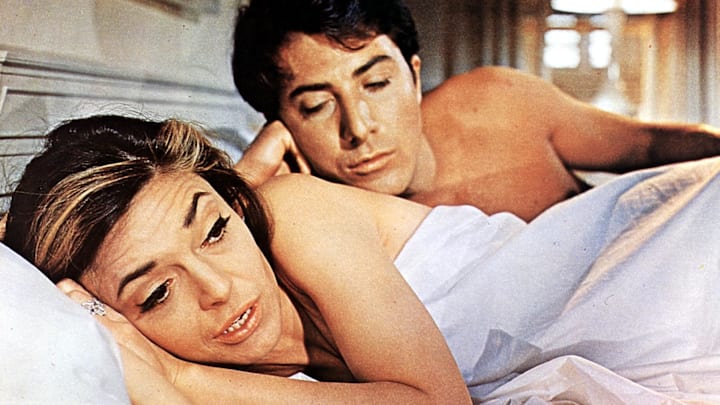Works that we consider classics—or, at the very least, valuable contributions to society—haven't always been seen as such. Sometimes it takes a little time and perspective for us to understand the true value of something. Here are a few examples of things that really tanked whey they were first released, but are now considered pretty important.
- The Gettysburg Address
- Dustin Hoffman’s performance in The Graduate
- Mini-skirts
- Wuthering Heights
- Vertigo
- “The Rite of Spring”
- Bleach
- Automobiles
- Moby-Dick
- Tom Brady
The Gettysburg Address
“The cheeks of every American must tingle with shame as he reads the silly, flat, and dishwatery utterances,” a critic sniffed in The Chicago Times.
Dustin Hoffman’s performance in The Graduate
Films in Review judged harshly the future two-time Oscar winner’s turn in the 1967 film: “The Graduate is a genuinely funny comedy which succeeds despite an uninteresting and untalented actor in the title role.”
Mini-skirts

“The masters of French fashion weighed the mini-skirt, found it wanting, and said it would not last,” a September 22, 1966, newspaper story opined. “Chanel and other designers called the skirts ‘exaggerated,’ ‘terrifying,’ and ‘hysterical.’”
Wuthering Heights

if you listen to an anonymous 1848 review in the magazine Atlas, “Wuthering Heights is a strange, inartistic story. There are evidences in every chapter of a sort of rugged power—an unconscious strength—which the possessor seems never to think of turning to the best advantage. The general effect is inexpressibly painful. We know nothing in the whole range of our fictitious literature which presents such shocking pictures of the worst forms of humanity.”
Vertigo
The New Yorker trashed the 1958 thriller, writing, “Alfred Hitchcock has never before indulged in such farfetched nonsense.” TIME concurred: “The old master has turned out another Hitchcock-and-bull story in which the mystery is not so much who done it as who cares.” Opinion of the film remains divided.
“The Rite of Spring”
Igor Stravinsky’s 1913 ballet is one of the most celebrated musical compositions ever, but when it premiered, audiences were shocked and appalled. They were used to demure, elegant ballets about classical subjects, and The Rite of Spring was about pagan Russia. People booed, fights actually broke out in the crowd, and Stravinsky, rumored to be in tears, ran out of the building in the middle of the whole thing.
Bleach
Rolling Stone was not exactly impressed with Nirvana’s first album effort, released in 1989. The magazine called Bleach “undistinguished” and said it “relied on warmed-over seventies metal riffs.”
Automobiles

The New York Times once thought cars were overrated. “The question of the automobile as a private and popular vehicle in this country is difficult to answer, both on account of the fact that the roads outside of certain limits of the city are not serviceable for automobile traveling and because there is no actual leisure class here which could find enjoyment in the horseless carriage the year round.”
Moby-Dick

Herman Melville must have been pretty depressed when the reviews for Moby-Dick rolled in. The London Morning Chronicle said it was “sheer, moonstruck lunacy” and the Southern Quarterly Review was particularly harsh, saying that the book was “sad stuff, dull and dreary, or ridiculous ... his Mad Captain is a monstrous bore.”
Tom Brady

Perhaps this isn’t a bad review, but it's certainly not a ringing endorsement. Quarterback Tom Brady was the 199th pick in the 2000 NFL draft—a sixth-round choice. The New England Patriots had four quarterbacks that season, and Brady brought up the rear until he moved up to second-string. He got his big chance in 2001 when starting quarterback Drew Bledsoe got injured.
Discover More Pop Culture:
A version of this story was published in 2009; it has been updated for 2025.
